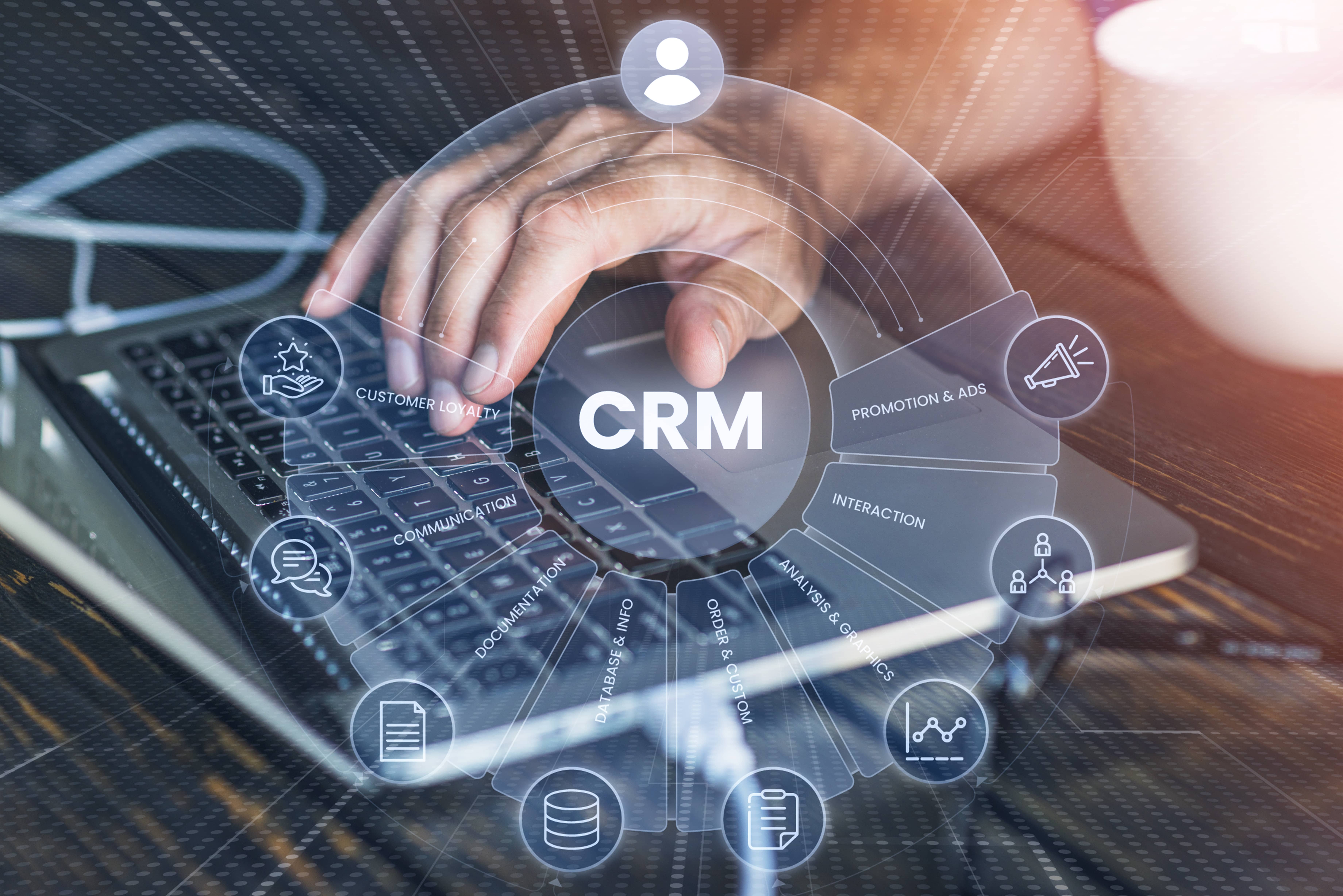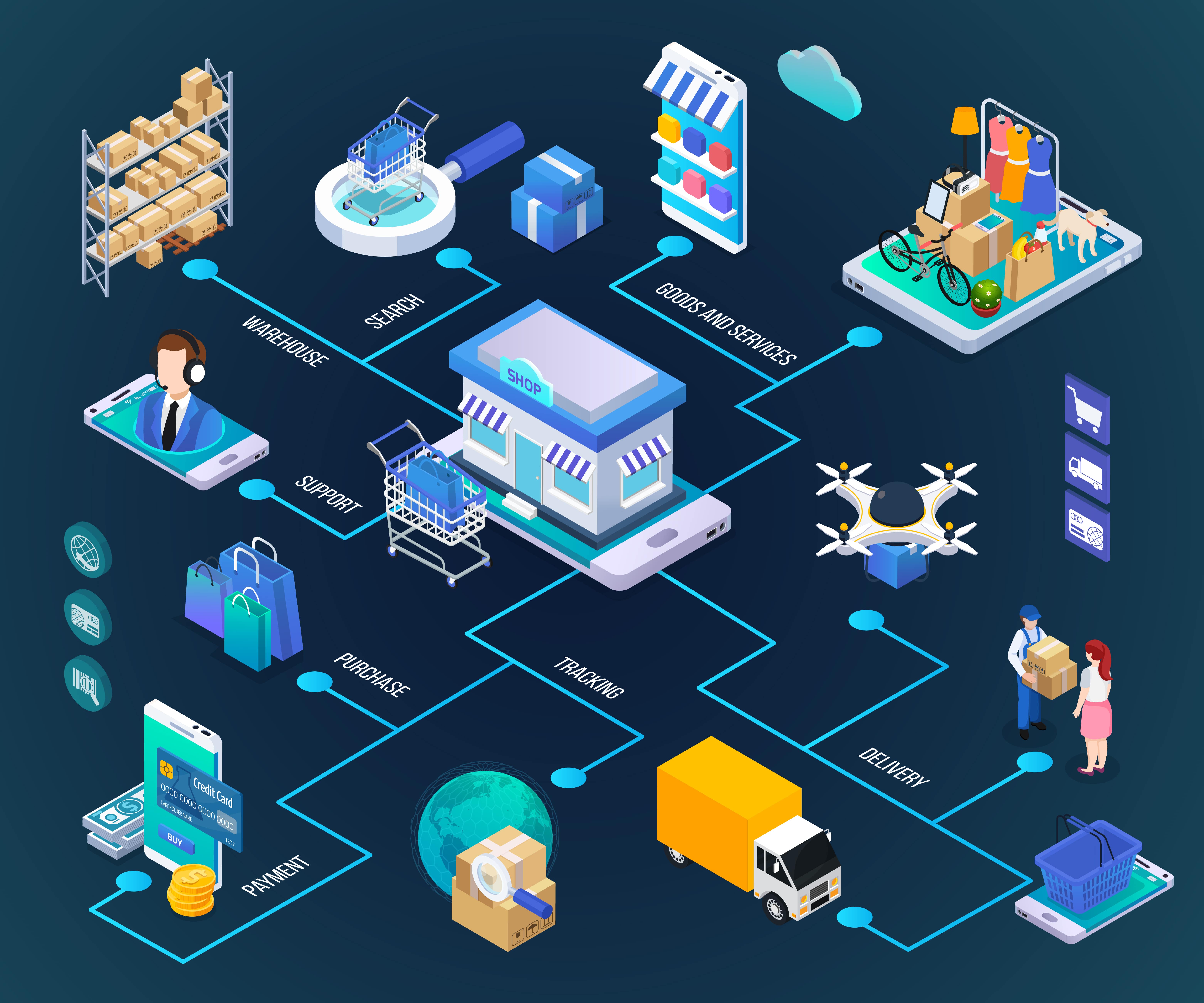Singapore is rapidly advancing as a regional hub for CRM adoption, fueled by strong digital transformation initiatives and government support. In 2024, Singapore's CRM market is robust, with revenue expected to reach around US$263.20 million and a projected compound annual growth rate near 10%, highlighting the critical role CRM plays in business success. Companies across sectors such as financial services, retail, and technology are increasingly adopting cloud-based CRM solutions, particularly systems powered by artificial intelligence, to deliver personalized customer experiences, streamline operations, and drive revenue growth. Leading CRM platforms like Salesforce dominate the market, integrating AI capabilities such as predictive analytics and automated customer interactions. Small and medium enterprises in Singapore are also embracing AI-powered CRM tools to manage multi-channel customer engagement efficiently and improve customer retention, reflecting CRM's indispensable role in the city-state's competitive business ecosystem. For SMEs, a CRM system is a crucial key to success; hence, Choco Up has prepared a CRM introduction article for you to know more about CRM, allowing businesses to grow more smoothly.
What is CRM?
Customer Relationship Management (CRM) is a strategic approach and a set of integrated software solutions that businesses use to manage, track, and analyze their interactions with current and potential customers throughout the customer lifecycle. The primary goal of CRM is to improve customer service, enhance customer retention, and drive sales growth by organizing customer data from various touchpoints such as websites, emails, social media, and phone calls into a centralized system.
At the same time, CRM systems empower businesses to gain valuable insights into customer behavior, preferences, and trends, enabling more personalized and efficient marketing, sales, and customer service efforts.
Additionally, modern CRM solutions often incorporate artificial intelligence to automate processes, provide predictive analytics, and improve overall customer experience, making them essential tools for businesses aiming to foster strong, lasting relationships with their customers.
Main functions of CRM system
A CRM system serves two key functions: high-level strategic functions and day-to-day operational functions. On a strategic level, CRM helps businesses manage sales opportunities, analyse personalised customer preferences, and perform sales data analysis & prediction to forecast trends. It also supports data-driven performance evaluation, allowing companies to make informed decisions based on real-time insights.
On the operational side, CRM streamlines tasks such as email notifications, report generation & analysis, and seamless data import/export. Additionally, it enhances customer engagement through social media integration and real-time communication tools like instant chat and SMS. These features work together to improve efficiency, boost sales, and strengthen customer relationships.
Benefits of CRM
There are 5 main benefits that CRM could offer to the businesses.
Firstly, CRMs enable businesses to treat each customer individually by maintaining comprehensive profiles. This leads to better understanding, faster responses, and more personalized interactions, enhancing customer satisfaction and loyalty.
Secondly, CRM systems help sales teams close deals faster by providing quick access to customer data and lead information. Automated reminders and streamlined processes reduce turnaround times and improve follow-ups.
Thirdly, CRM tools create structure around customer engagement, ensuring consistent follow-ups and proactive management of renewals and support. Knowing that retaining customers is often more profitable than acquiring new ones, businesses could have better profit performance with well-structured CRM systems.
Fourthly, by analyzing past purchase history and customer preferences, CRMs empower businesses to offer relevant complementary or premium products, increasing revenue opportunities.
Last but not least, A CRM provides a single source of truth where all customer interactions and data are stored, accessible to all relevant teams, drawing data from all channels that customers might potentially come from. The centralization allows businesses to reduce redundant, complex steps to gather and organize the data by manual effort.
The 4 Types of CRM
There are different types of CRM, including operational, analytical, collaborative and strategic, each supporting specific business functions from automating daily interactions to data analysis and cross-department collaboration.
Operational CRM
Operational CRM is a type of customer relationship management system designed to streamline, automate, and optimize the day-to-day, customer-facing business processes—primarily in sales, marketing, and customer service.Operational CRM integrates all customer information into a unified platform, ensuring real-time access for teams interacting directly with customers.
Operational CRM Examples
HubSpot
Automates workflows for marketing, sales, and service; triggers follow-ups and notifications; manages contacts and deals; integrates live chat, email tracking, and marketing campaigns on a single platform. HubSpot’s Operations Hub extends capabilities with programmable automation, data sync, and payment workflow automation, ensuring a unified and efficient experience for teams and customers.
Zoho CRM
Streamlines sales force automation, lead and deal management, contact management, workflow automation, process management, and multi-channel communication. Zoho CRM helps businesses capture and nurture leads, automate routine tasks, structure sales processes, and integrate with other systems for operational efficiency.
Pipedrive
Focuses on sales pipeline management, contact and deal management, workflow automation, and communications tracking. Pipedrive allows teams to visualize sales progress, automate follow-ups, integrate emails, and create tailored pipelines—making routine customer interactions easier for sales-centered teams.
Analytical CRM
Analytical CRM is a type of customer relationship management system focused on collecting, analyzing, and interpreting customer data to gain deep insights into customer behaviors, preferences, and trends. Unlike operational CRM, which manages daily customer interactions, analytical CRM uses advanced data analytics, data mining, and predictive modeling to help businesses make data-driven decisions, improve marketing strategies, optimize customer retention, and forecast future sales outcomes.
Analytical CRM Examples
Salesforce
Salesforce's CRM analytics tools provide comprehensive dashboards, AI-powered Einstein Analytics for predictive insights, customer segmentation, and campaign performance analysis. It helps businesses optimize sales and marketing strategies based on data insights.
Zoho CRM
Zoho CRM offers built-in analytics for data visualization, trend analysis, customer behavior insights, and AI-powered predictions through Zoho Analytics. It helps marketers create data-driven campaigns and improve customer retention.
Solid Performers CRM
Focused on data-driven decision-making, Solid Performers CRM provides robust data mining, segmentation, and reporting tools designed to help businesses understand customer trends and optimize marketing and sales strategies accordingly.
Collaborative CRM
Collaborative CRM is a type of customer relationship management system designed to enhance communication, coordination, and information sharing across various departments within an organization. Its primary goal is to break down silos between teams such as sales, marketing, customer service, and product development, creating a unified, customer-centric approach. By enabling cross-functional collaboration, companies can provide consistent, personalized, and efficient customer experiences that improve satisfaction and loyalty.
Collaborative CRM Examples
Lark
Lark offers a collaborative workspace combining chat, video, calendar, docs, and task management. It enables teams to share customer information, collaborate in real-time, and streamline workflows for a unified customer approach. This integration supports better internal communication and faster response to customer needs.
Solid Performers CRM
Focused on enabling seamless collaboration across marketing, sales, and support teams, it provides centralized data access, communication integration, and workflow automation to ensure consistent and personalized customer engagement. The platform emphasizes teamwork to improve customer satisfaction and retention.
Pepper Cloud CRM
Provides a cloud-based collaborative environment where teams can share customer insights, coordinate actions across channels, and automate interactions. It supports multi-channel communication, document sharing, and shared customer history for cohesive customer management across departments.
Strategic CRM
Strategic CRM is a customer relationship management approach focused on building and maintaining long-term, meaningful relationships with customers. Unlike operational CRM, which concentrates on automating daily sales and service tasks, strategic CRM emphasizes understanding customer needs and behaviors deeply to drive loyalty, retention, and sustained business growth. It involves using customer data and insights to tailor personalized experiences, anticipate customer requirements, and align business strategies with customer expectations.
Strategic CRM Examples
Oracle NetSuite CRM
Offers comprehensive customer lifecycle management including lead nurturing, sales forecasting, and customer analytics to formulate long-term engagement strategies. It integrates business processes and customer data to enhance personalized service and maximize customer lifetime value.
Salesforce
Salesforce’s strategic CRM capabilities leverage AI-powered Einstein Analytics to deliver predictive insights and customer segmentation. It helps companies craft targeted campaigns, retain customers through personalized experiences, and make informed strategic decisions.
Zoho CRM
Zoho CRM supports strategic CRM with advanced analytics, customer behavior tracking, and AI-driven recommendations. It enables businesses to create tailored sales and marketing approaches, automate workflows, and improve customer satisfaction to foster loyalty and growth.
How to choose a suitable CRM software for your company?
Selecting the right CRM software is crucial for improving business efficiency. Here are some tips to help you find the best CRM for your company.
Steps to Choose the Right CRM software
1. Identify Business Needs
Determine whether you need a CRM for sales automation, customer support, marketing, or data analysis.
2. Set a Budget
Evaluate costs, including subscription fees, implementation, training, and customization. Some CRMs offer scalable pricing, while enterprise solutions may require higher investment.
3. Explore Funding & Grants
In Singapore, businesses can leverage government support such as IMDA’s SMEs Go Digital programme or Enterprise Development Grant (EDG) to offset CRM adoption costs. These subsidies can reduce your initial investment, making the CRM adoption more accessible.
But what if you need additional financial support or quicker access to capital? Choco Up addresses this challenge with a flexible, non-dilutive financing option tailored to SME growth. Discover how Choco Up’s revenue-based financing, Upstart can fuel your CRM adoption and business growth.
4. Compare CRM Options
Look for key features like user-friendliness, integration capabilities, and scalability. Popular choices include HubSpot, Salesforce, Zoho CRM, and Microsoft Dynamics.
5. Test with Free Trials/Demos
Many providers offer trial periods. Please use the free trials to assess if the CRM fits your workflow.
6. Check Vendor Support & Training
Ensure the provider offers local customer support, training resources, and troubleshooting to ease adoption.
Key CRM Components Businesses Should Consider
- Centralised Contact & Lead Management
- Sales Pipeline Automation
- Marketing & Campaign Integration (e.g. Email marketing, social media, and ad tracking)
- Real-time insights Reporting & Analytics
- Mobile & Cloud Accessibility
- Third-party Integrations (e.g. ERP, accounting software, and e-commerce platforms)
CRM FAQ
1. What is CRM?
Customer Relationship Management (CRM) is a strategic approach and a set of integrated software solutions that businesses use to manage, track, and analyze their interactions with current and potential customers throughout the customer lifecycle.
2. What are the 4 types of CRM?
Operational, analytical, collaborative and strategic CRM
3. What data will CRM systems collect & manage?
CRM systems collect and manage customer contact details, purchase history, interactions, preferences, sales pipelines, support tickets, and marketing campaign responses. They analyze this data to improve sales, service, and personalized engagement while ensuring secure, centralized access for teams.
4. Can I use different types of CRM at the same time?
Yes, businesses can use multiple CRM systems simultaneously, but it requires careful integration to avoid data silos and inefficiencies.
Summary
CRM plays an important role in enabling businesses to enhance their customers' experience further, facilitate easier internal operations and management, and reduce long-term monetary and time costs. However, developing a suitable CRM system for your scenario could require early-stage investment and maintenance effort, which most companies find difficult to start with.
Choco Up understands what you need and hence fuels businesses with our flexible and easy-to-apply RBF solutions. With Upstart, you don’t have to be limited to repaying with a fixed amount. Instead, Choco Up will go through ups and downs with your company, offering the best funding options from time to time. Contact our expert now for your customized plan!



